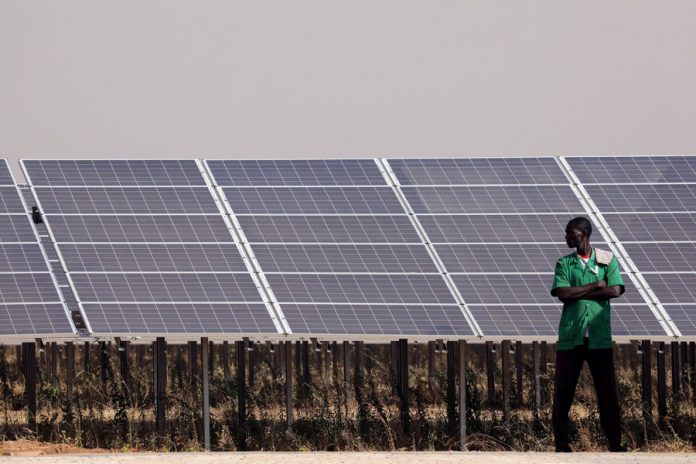Launched in a vast plan to build solar power plants, Burkina Faso confirms its choice of renewable energy, the engine of development in this very poor country.
Burkina Faso has just inaugurated a plant for the production and assembly of solar panels. According to the government, Faso Energy is the first factory of this type in West Africa. The investment amounts to nearly five million euros. With a daily production of 200 panels, it will allow the installation of an annual power of 30 megawatts. The company, which employs around 100 people, ensures that it masters a technology that meets European standards.
Faso Energy is in a way the keystone of the ambitious program to develop solar electricity in Burkina Faso. It involves building sixteen solar power plants throughout the country with a total potential of 250 megawatts. So, as long as you install solar panels, you might as well produce some of them yourself.
An ambitious project
Large-scale solar energy in Burkina Faso began in 2017 with the Zagtouli power plant, 20 km southwest of Ouagadougou. No less than 130,000 panels were installed on a 55-hectare site. The power plant produces 33 megawatts of free and clean energy.
The Yeleen project aims to build four new power plants. The largest, northwest of the capital, will produce 40 megawatts over 60 hectares and will be connected to the grid through a power line bypassing the north of the city for more than 30 km. Three other so-called “regional” power plants, of lower power, will be built in the cities of Diapaga; Dori, and Gaoua (north, east, and south of the country).
The French Development Agency (AFD) and the African Development Bank (ADB) are assisting the National Electricity Company of Burkina Faso (Sonabel) in the project. The investment amounts to more than 150 million euros, half of which is provided in the form of loans by the AFD; 34% by the ADB, and the European Union.
Inexhaustible wealth
The stakes for Burkina Faso are considerable. Solar energy represents a real asset for the country, which is currently highly dependent on its neighbors for the supply of electricity. Ghana and Côte d’Ivoire provide up to 30% of its electricity needs. The rest is provided by expensive oil-fired thermal power plants. However, according to its promoters, solar energy can reduce the price per kilowatt by a factor of three.
Thanks to lighter infrastructures, solar energy will also make it possible to supply populations that are still far from electrification. Only one Burkinabe out of five has electricity. Where the construction of a thermal power plant would not be profitable due to a small population, solar power is adaptable. According to the Minister of Energy, Bachir Ismaël Ouedraogo, thanks to the Yeleen program, 110,000 more inhabitants will have access to electricity.
Burkina Faso, ranked among the poorest countries in the world, has an inexhaustible and inalienable wealth with the sun. The country now intends to take full advantage of this wealth.
Source: Franceinfo

